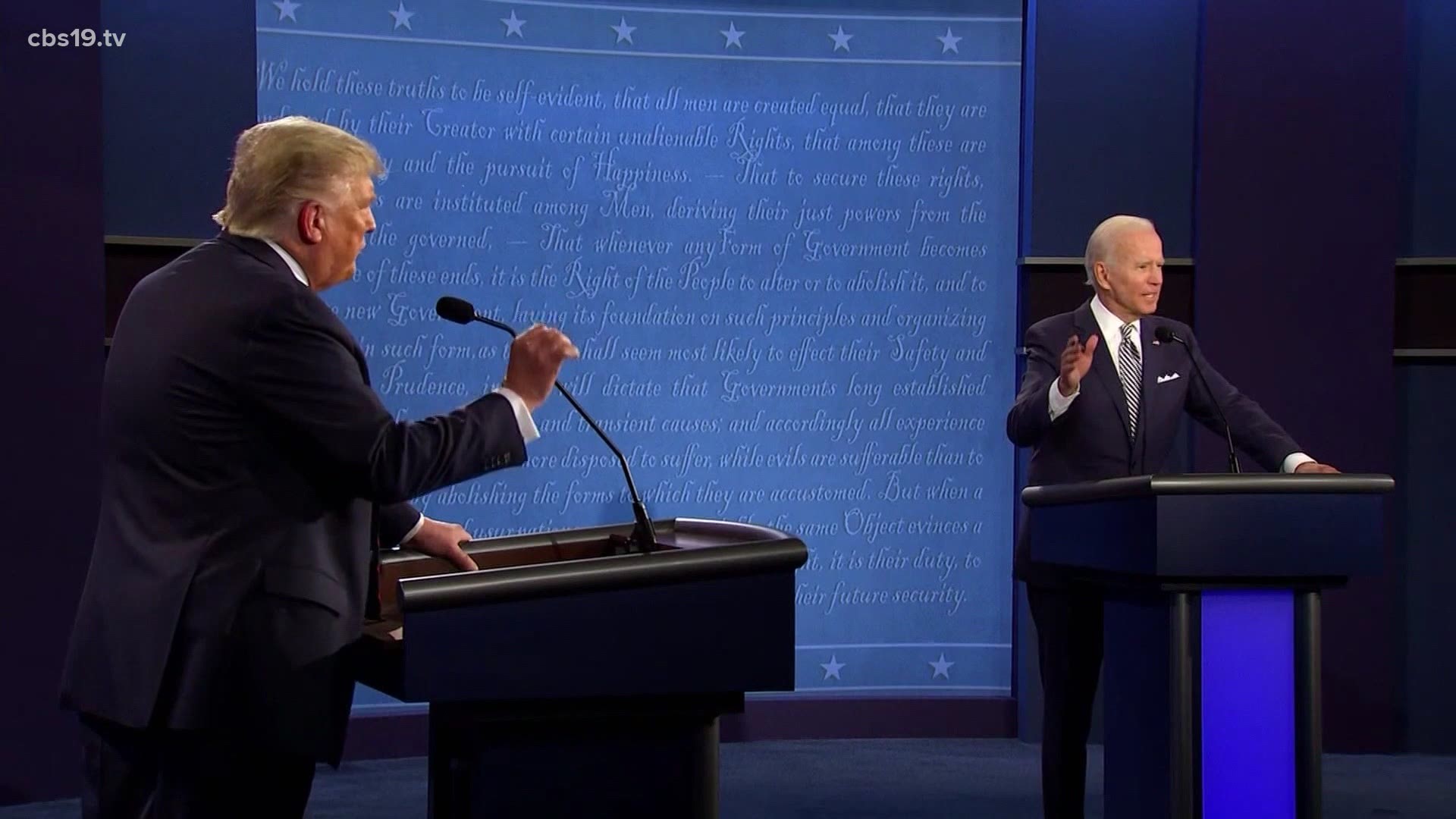TYLER, Texas — A new study shows that more than half of Americans expect Election Day to be the "most tense day of their lives" so far.
Dr. Jeffery Matthews is the chair of the Psychiatry at the UT Health Science Center in Tyler. He says that isn't surprising.
"I think we're all feeling that," Dr. Matthews said. "It's, you can't really watch the news or even, you know, have a conversation about politics or the election without that feeling of stress coming up."
Dr. Matthews says that one of the best ways to keep the feelings of anxiety away is by keeping things in perspective.
"Step back and really look at these people who share your view and the people who don't share your view," Dr. Matthews said. "They're both your friends, your family, your neighbors, these are people that you know, and to really start looking at what you have in common and trying to understand their perspective may help reduce some of that stress that we feel about what could happen."
The study shows that 61% of millennials and 58% of Generation Xers are stressing the most, compared to only 32% of baby boomers.
John Barrett, an associate professor at Letourneau University, says the presidential campaigns have contributed to people's stress.
"I think one of the things that's going on with this election, is just the intensity of that campaign," Barrett said. "There's a lot of language being used this time that we don't typically see, so I think part of it is that the campaign itself has been dirty to the point that it causes a lot of stress and anxiety."
Some ways to limit your stress include:
- Dial back on your social media usage in the next few days.
- Try to stay active, exercise, meditate, whatever makes you feel calm.
- Keep in mind, we probably won't know all of the results on Election Night.
"In a close race, it can take them a while to figure out who won and especially in states where they're doing mail-in balloting, and in some of these states they're not allowed to start counting the ballots until after the polls close," Barrett said. "And some until after Election Day and so, you're going to have potentially a case where you've got very tight races and the ballots have to be counted, you know, for several days a week or something afterwards."

